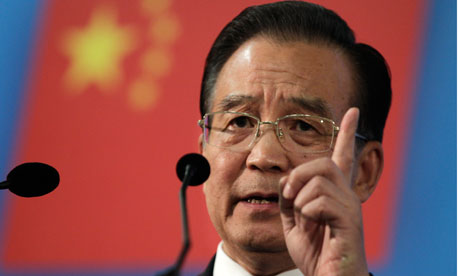By Brianne Yantz
Impunity Watch Reporter, Asia
BEIJING, China – Reports began to surface last week that China has suspended its policy of deporting North Korean defectors back home in accordance with a plea from South Korean officials. The move is said to have been in response to North Korea’s failure to inform China about the specific plans regarding its recent missile launch earlier this month and, if true, indicates the Chinese government’s displeasure with North Korea’s intentional incitement of international tensions.

Allegedly, China has been demanding that North Korea refrain from acts of international aggression and provocation, which the North Korean government has evidently ignored.
Before this recent fall out, China had been dealing with North Korean defectors under its domestic laws, classifying them as “illegal economic migrants” and deporting them back home. These actions have drawn heavy international criticism from human rights activists, who called the repatriations inhumane. It is widely known that North Korea has been torturing and, in some instances, executing its repatriated refugees, but until now, China had been ignoring these practices. It is uncertain exactly if and when China purportedly began to halt these deportations.
The number of North Korean defectors entering China has grown intensely since the death of former leader Kim Jong Il last December. According to a source working for the Chinese authorities, at it’s height, as many as thirty North Koreans had been escaping to China on a daily basis.
Now, according to reports, tensions between China and North Korea have led Chinese officials to halt its practice of returning all captured defectors. Furthermore, in a move against North Korea, China has allegedly allowed five North Korean defectors who had been under arrest in a diplomatic office in China for the last three years to leave for Seoul, South Korea earlier this month.
At this time, it is unclear whether North Korea’s blatant disregard for China is the sole reason why China has supposedly halted deportations or for how long this suspected suspension will last. However, in late March, Chinese President Hu Jintao indicated that China would be more flexible in its deportation policy and that it would be respectful of South Korea’s strong opposition to the mal-treatment of North Korean defectors.
While the U.S. has yet to confirm if these reports are true, State Department spokesman Mark Toner indicated that officials in Washington are hopeful.
“We consistently urge China to adhere to its international obligations as part of the UN Convention on Refugees,” Toner stated.
For more information, please see:
AFP – US Takes China ‘at Word’ on N. Korea Sanctions – 20 April 2012
Voice of America – Panetta: China Assisted North Korea Missile Program – 20 April 2012
Daily Yomiuri – China Stops Deportations of N. Koreans – 19 April 2012
Chosunilbo – China Halts Repatriation of N.Korean Defectors – 19 April 2012
Korea Herald – China Said to Have Stopped Repatriating N. Korean Refugees – 18 April 2012

